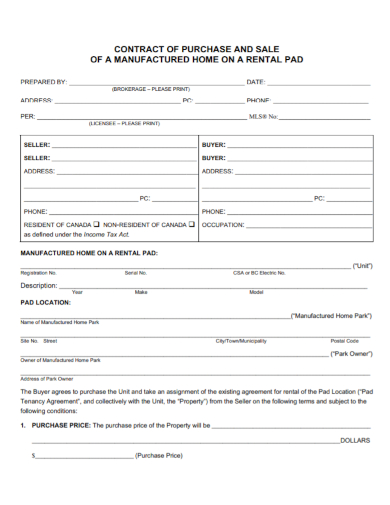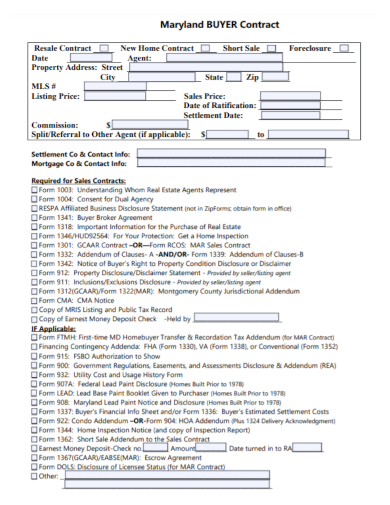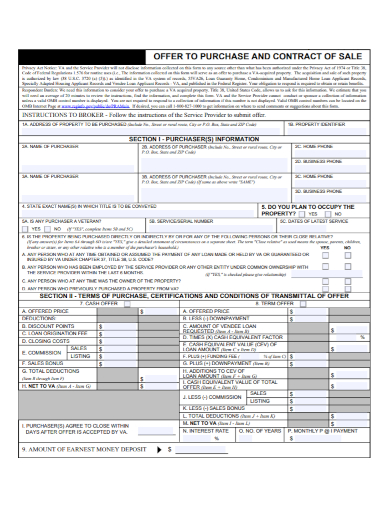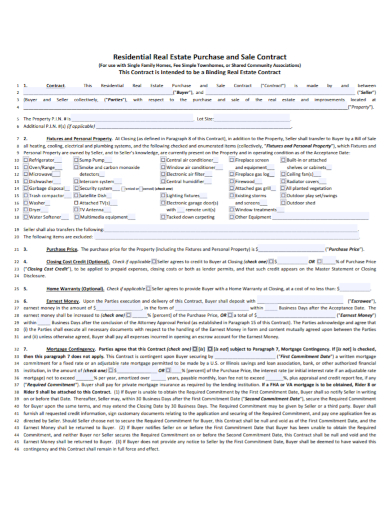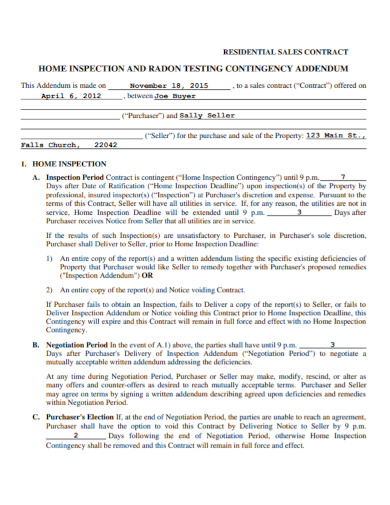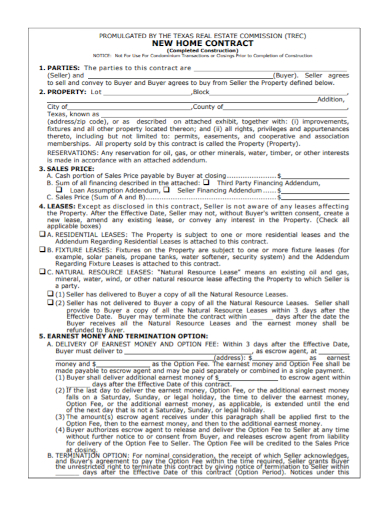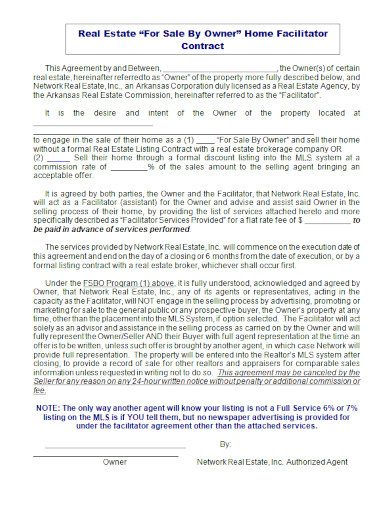Real estate is a tough industry with many nuances to iron out before moving in. Hiring an agent, choosing a dream house, financing, and making an offer may be time-consuming and complex. When you make a formal offer to buy the home you want, you’ll have to read and fill out a lot of paperwork. Here are several nuanced topics to include in your real estate purchase contract besides the address and price. Your real estate contract has contingencies. Finding the perfect buyer and home is exciting. Before you hand over the keys, you’ll need to prepare a purchase agreement that defines the buyer and seller’s stipulations.
7+ Home Sale Contract Samples
Before trading a residence, a buyer and seller must finalize a real estate contract outlining the terms and circumstances. Real estate contracts outline the terms of the sale of a house, townhouse, or condo. Real estate contracts are often called real estate purchase agreements or home buying agreements. Homebuyer, present property owner (or seller), and purchasers’ and sellers’ real estate brokers or agents are engaged in a real estate sales contract. The parties may alter or amend an initial contract to include additional information or counteroffers. Once the seller accepts the buyer’s offer, the residence is “under contract.”
1. Home Sale Contract Template
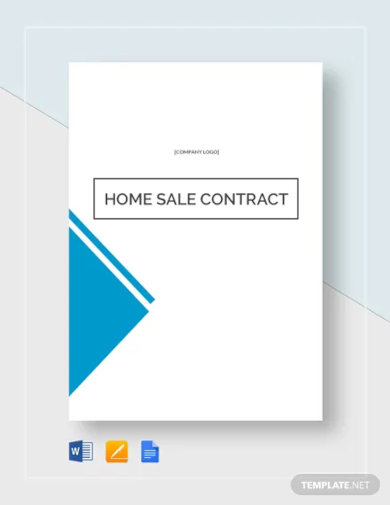
2. Manufactured Home Purchase and Sale Contract
3. New Home Short Sale Contract
4. Home Offer Purchase Contract of Sale
5. Real Estate Home Purchase and Sale Contract
6. Home Inspection Residential Sales Contract
7. New Home Sales Price Contract
8. Real Estate Home Owner Sale Contract
What Does a Real Estate Contract Include?
A real estate sales contract must outline the numerous facets of a new house acquisition. Both buyer and seller are protected by these agreements. The real estate contract includes:
FAQs
What are some of the financing terms when creating a home sale contract?
You’re probably not financially stable enough to make an all-cash offer on a home. You’ll need a mortgage. Before making a buying offer, examine the interest rate environment and your debt and credit score. Your buying offer should be reliant on a certain interest rate. This is essential because: If you can’t afford the monthly payment at 6%, don’t offer 6.5 or more. If you do so and can only receive 6.5% financing, the seller keeps your earnest money deposit if you back out. Specify in your contract whether you require an FHA or VA loan to close the deal. Sellers will be more interested in your offer if you’re paying cash. Why? If you don’t need a mortgage, the deal and closing are more likely to go through.
Who pays the specific closing costs?
The agreement should state who pays for escrow, title search, title insurance, notary, recording, transfer tax, etc. Who pays these fees in your area might be determined by your real estate agent.
What to do when you are selling an existing home?
If you require the sale of your current house to buy a new one, make your buying offer contingent on its sale. You should give yourself 30 or 60 days to sell your old home. The seller of the home you want won’t take it off the market while you look for a buyer. Many other items go into a real estate contract, but you shouldn’t worry about them. Real estate brokers often use fill-in-the-blank forms.
In spite of the fact that these forms are widespread and standardized, and a savvy real estate agent wouldn’t permit you to leave anything out of your contract, it is still a great thing for you to enlighten yourself on the primary aspects of a real estate purchase agreement. It is never simple to uproot oneself, particularly if they are emotionally invested in their residence, but there are occasions when it is unavoidable. You are free to walk away from the transaction and keep the money if any of the terms of the contract are not satisfied. One of the most important and lucrative aspects of your real estate portfolio is the conditional contract.
Related Posts
Sample Material Lists
Sample Excuse Letter for School
Feature Writing Samples
FREE 14+ Sample Music Concert Proposal Templates in MS Word | Google Docs | Pages | PDF
FREE 10+ Security Guard Contract Samples in PDF | MS Word
FREE 10+ Assurance Agreement Samples In MS Word | Google Docs | Apple Pages | PDF
FREE 10+ Option to Purchase Agreement Samples in MS Word | Apple Pages | PDF
FREE 26+ Curriculum Form Samples in MS Word | PDF
FREE 20+ Cleaning Service Proposal Samples in PDF | MS Word
FREE 29+ Sample Loan Application Form Templates in MS Word | PDF
FREE 10+ Event Venue Contract Samples in PDF | MS Word | Pages | Google Docs
FREE 10+ SBAR Samples in PDF | DOC
FREE 12+ Music Band Contract Templates in PDF | MS Word
FREE 10+ HVAC Maintenance Contract Samples in PDF | MS Word
FREE 10+ Social Media Marketing Contract Samples in MS Word | PDF

